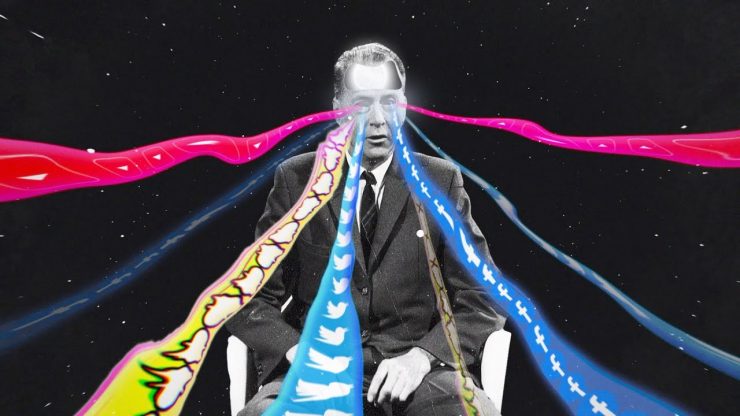Media theorist Marshall McLuhan’s work best explains how the world changed in the 2010s—and what we can expect in the decade ahead. —————— Subscribe to our YouTube channel: https://www.youtube.com/ReasonTV?sub_… Like us on Facebook: https://www.facebook.com/Reason.Magaz… Follow us on Twitter: https://twitter.com/reason Subscribe to our podcast at Apple Podcasts: https://goo.gl/az3a7a Reason is the planet’s leading source of news, politics, and culture from a libertarian perspective. Go to reason.com for a point of view you won’t get from legacy media and old left-right opinion magazines. —————- What did the 2010s add up to? I spent the decade at Reason creating videos about the democratization of everything and the declining power of society’s gatekeepers. “Everything that we prize in our Western world, in matters of individualism, separatism, private point of view… all of those things are highly favored by the printed word,” said media theorist Marshall McLuhan in a 1965 BBC interview. McLuhan, who coined the axiom “the medium is the message,” argued that history’s prime mover isn’t the Great Leader or the Great Thinker but ever-changing communications technologies. As societies moved from oral traditions to written ones, McLuhan argued, there was a bottom-up cultural shift. Tribal groups who relied on face-to-face communication and mythology morphed into more complex, less homogeneous societies thanks to the written word. And when the printing press standardized communications, the distribution of literature created the very concept of “a public” bound together by common languages and texts. This set the stage for the rise of modern nation-states and the Enlightenment. In the 1960s, McLuhan identified our current epoch as the “Electric Age,” in which circuit-based media gave rise to what he termed “the global village.” For the first time in history, the entire world could follow a single event. McLuhan predicted that this electric “global village” would undo both the national homogeneity and personal individuality engendered by print, reviving our more fractured and tribal past. “Involuntarily, we’re getting rid of individualism,” McLuhan said, identifying the shift away from print towards “electric” media like radio and television as the main causal factor. “We’re more concerned with what the group knows, of feeling as it does, of acting ‘with it.'” And as the electric age evolved into the digital age with its cheap, limitless replicability, this retribalization accelerated in the 2010s. This is why the past decade has both created opportunities and dangers for the libertarian worldview. But if McLuhan is right, there’s no going back. His technological determinism will seem bleak to some, but it also offers a path to personal agency and self-awareness. Produced and written by Zach Weissmueller. Opening and closing graphics by Lex Villena. Photo credits: Xinhua News Agency/Newcom, Roger L. Wollenberg/UPI/Newscom, Anthony Nowack/Photoshot/Newscom, Henrique Casinhas/ZUMA Press/Newscom, Ron Sachs/SIPA/Newscom. “Machinery” by Kai Engel licensed under a Creative Commons License. “Where Are My Clothes,” “Red Dead Masque,” “Sink Whole Dream,” “I Can’t Remember I Can’t Recall,” and “Sunburned Salvation” by the 129ers licensed under a Creative Commons License.









